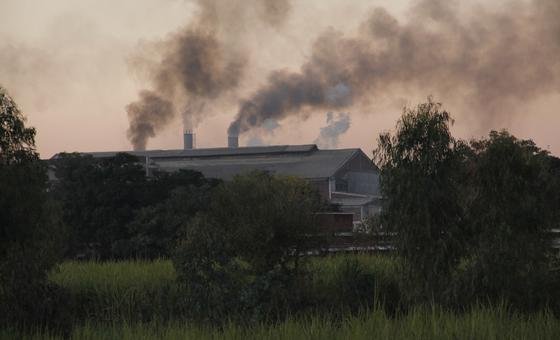UNICEF representative in Pakistan Abdullah Fadil said in a statement issued on Monday that air pollution in Lahore and Multan broke records last week.
Air pollution levels in these two cities are estimated to be 100 times higher than the World Health Organization’s air quality standards. Hundreds of people, including a large number of children, have been hospitalized, and the air pollution is so severe that it is visible from space.
The UNICEF representative noted that prior to these record-breaking levels of air pollution, air pollution was responsible for 12 percent of the deaths of children under the age of five in Pakistan.
It will take time to understand the impact of this year’s unprecedented smog, but it is clear that doubling or tripling the amount of polluted air would have disastrous effects, especially on children and pregnant women.
Serious health effects
“Young children are the most affected by air pollution, as their lungs are small and their immune system is weak, which develops over time. “They breathe twice as fast as adults and inhale more air with pollutants, which can cause life-threatening respiratory illnesses.”
At the same time, pregnant women are more likely to give birth prematurely if they are exposed to polluted air. They may suffer from respiratory diseases and may also have low birth weight.
The UNICEF representative said that Pakistan was already facing an education emergency and 25 million children were deprived of school education. In such a situation the risk of children not getting education cannot be taken.
Abdullah Fadil said every child has the right to breathe clean air. “Children’s right to health and education must be protected at all costs. UNICEF calls on the Government of Pakistan to ensure these rights for every child.”
Emphasis on preventive measures
UNICEF representative Abdullah Fadil said the UN’s annual climate conference, COP29, is a real opportunity for countries’ governments to turn their pledges into climate action before it’s too late.
According to him, small children should not be allowed to breathe in toxic air. “We cannot afford to see the health, education and well-being of millions of children suffer like this. We must act today for the sake of children and their future.”
Schools in smog-affected areas in Pakistan have been closed until mid-November, to protect children from the harmful effects of polluted air. Because of this, the education of more than one and a half crore children of Punjab province has been disrupted.
UNICEF is supporting government awareness campaigns to reduce smog in Punjab province and efforts to reduce emissions and move towards renewable energy.
In parallel, reducing emissions from agricultural and industrial activities will also be necessary to ensure children’s health.

